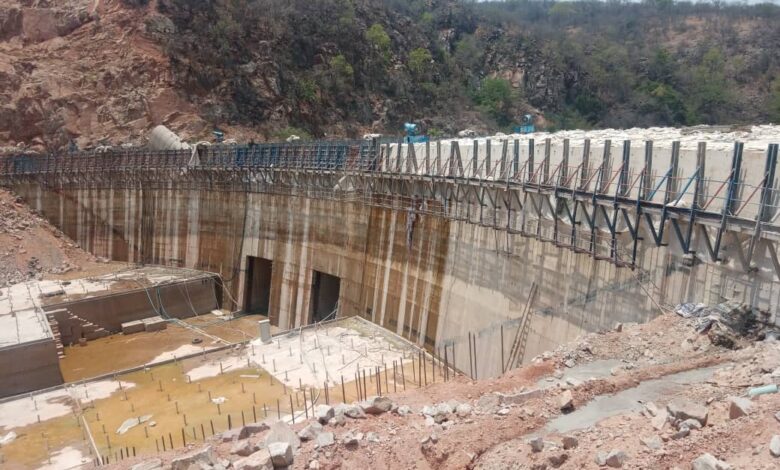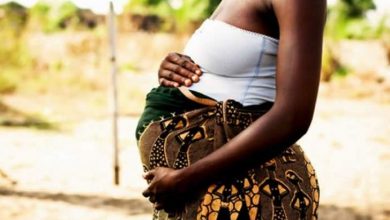Paying the price for development in Zimbabwe: Relocations and displacements translates into untold pain and suffering

By Lungelo Ndhlovu
Three years after the adoption of the Vision 2030 development policy push which seeks to transform Zimbabwe into a Prosperous and Empowered Upper Middle Income Society of over US$5000 by 2030 from the current US$1 440, vulnerable communities from several parts of the country will either lose their land or displaced to pave way to government’s large scale developmental projects.
Between 2019 and 2021, government-orchestrated international investments and development initiatives have resulted in over 73 524 people either being actually displaced or risking evictions by mining, agriculture, urbanisation and development initiatives across the country, with over 4 999 households being under threat of evictions and more than 23 440 hectares of land to be taken away from communal and peasant farmers, according to Matabeleland Institute for Human Rights (MIHR) research findings.
Relocations translate into untold pain and suffering where vulnerable communities pay a heavy price as a result and should be done after the creation and implementation of a sustainable relocation model for vulnerable communities making room for such development projects, said Khumbulani Maphosa, coordinator for MIHR.
“Development displacements the world over have been proved to have adverse impacts on the rights of the people in terms of their enjoyment of basic social, economic and political rights. That is the reason why at a global level there has been a convergence of minds in terms of formulation of global policy, in terms of guiding and regulating the handling of development-induced displacements. So, all these legal instruments are a recognition that development-induced displacements may disenfranchise the people,” he said.
Maphosa noted that Zimbabwe signed and ratified the African Union Convention for the Protection and Assistance of Internally Displaced Persons in Africa (Kampala Convention) and is legally bound by it, in terms of handling its own development-induced displacements, “At local level, if you read the Zimbabwe Human Settlements Policy of 2020 it acknowledges that where development induced displacement have to occur they should be relocations and compensations framework that guide them. But unfortunately as a country we have been dragging our feet in the mud in terms of enacting that kind of a framework.” he said.
“Displacements may also worsen the poverty of the people, the human rights vulnerability of the affected people and may worsen the lack of enjoyment of fundamental human rights and freedom of the people. Sometimes there is violence in these displacements, sometimes there is corruption in how compensation is done and sometimes there is also the abuse of women, girls, children and the elderly. It also takes away the cultural right of the people, the social right, the political right of the people,” Maphosa added.
On 26 February 2021, the Local Government, Urban and Rural Development Minister, July Moyo, published a legal notice [SI 2021-050 Communal Land (Setting Aside of Land) (Chiredzi) Notice, 2021] ordering 12 500 people from 2 258 households on 12 940 hectares of Chilonga communal land in Chiredzi to leave immediately because the said land was set aside for lucerne grass production for stockfeed.
Nick Mangwana, Information Ministry’s permanent secretary on 4 March, shared a video message on Twitter in which the legislator for Chiredzi West, Farai Musikavanhu claimed that the government had consulted the Shangani people of Chilonga on the issue of the relocation and that they supported the lucerne production project.
Fidelis Chima, the coordinator for the Greater Whange Residents Trust (GWRT), a non-profit community group, said in an interview, that displacements or the uprooting of people from their ancestral land, as what is happening at Chilonga and in other parts of the country was a cause for concern, also acknowledging that in Hwange District, about 3 600 villagers (from 600 households) face eviction due to coal mining extraction by Beifa Investments, a Chinese company including 100 homesteads from Jembwe, Jabula, Kasikili and Kanywambizi communal lands who face eviction due to the establishment of the of Batoka Township.
“Those displacements actually affect people’s traditional way of life. Secondly, when people are removed from their land in most cases, the government does not come up with alternative shelter for the affected community. Then, the other challenge is that once they are displaced it becomes difficult for people to adjust to the new areas which they are relocated to.
“For example, people will be coming from places where there are pastures and they get relocated to places which don’t have pastures, where there are no fields. You will notice that as an organisation we are now actively participating in Environmental Impact Assessment consultations for development projects because it is at that stage where we can raise such concerns,” he said.
Emmanuel Takutaku, Beitbridge Progressive Residents and Ratepayers Development Trust noted that about 34 202 people from wards 7, 8, 9, 10 and 11 are set to lose over 4 000 hectares of Shobi Block to Schweppes Company for a Citrus plantation project and his organisation has since raised concern over the relocations which will affect vulnerable communities in Matabeleland South.
“We are against those displacements because they are done haphazardly. There is no proper planning and compensation from the government. Community members including those in the rural areas where the project is going to happen are apprehensive about the issue of displacements. Yes there is some form of employment but the problem is who is going to be employed when the people from the same area are being turned away. So, the program is going to benefit other people instead of those who are displaced from their land,” he said.
Kezi Chief Vuyani Nyangazonke Ndiweni noted that in most cases where there are displacements or relocations by developmental projects, there are no follow-ups to check whether people have settled well in new areas and in some cases, the locals are not consulted first.
“When people are relocated there are no follow-ups to check on people’s livelihoods. People are left on their own. So, when there are such programs [developmental projects] areas should be identified for those people first and prior before the commencements of projects because we are talking about human beings and the benefit of those people.
“For example, if you were to look at the water issue [Gwayi-Shangani dam], there are some people who are going to benefit but are not coming from that area. So there has to be a ‘win-win’ situation and consultation with the locals is very important. People should voice out their concerns about the perceived benefits. As chiefs we also have structures of leadership but we are side-lined when it comes to relocations and decisions are just made,” he said in a telephone interview.






